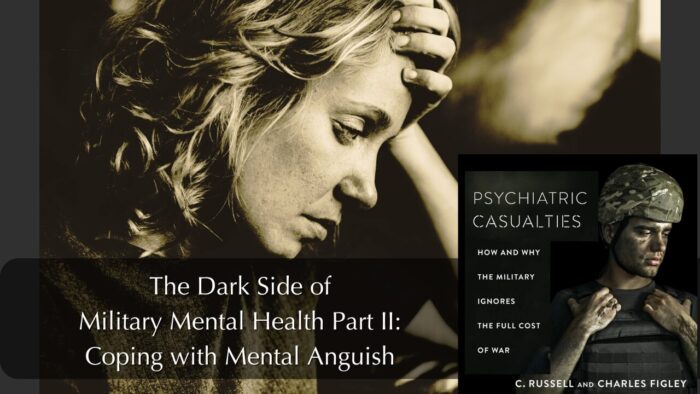In the shadows of the battlefield, there lies an invisible war that many Veterans face long after the guns fall silent: the war within the mind. In this episode of Psychiatric Casualties on CHW Streaming Radio, Mark Russell and Charles Figley pull back the curtain on the often-neglected crisis of military mental health care.
Throughout the episode, Russell and Figley, both experts in the field, dive into the pages of their book, “Psychiatric Casualties,” to explore the complex tapestry of mental health issues that affect service members. They discuss a range of topics, from the spectrum of neuropsychiatric diagnoses to the concept of cultural idioms of distress, which highlights how different backgrounds influence the way individuals express and cope with mental anguish.
The conversation takes a deeper dive into the stigmatization of mental health within the military, where physical symptoms are often more readily discussed than psychological ones. The hosts explain how conditions like PTSD are just the tip of the iceberg, with many service members suffering from a host of medically unexplained symptoms – manifestations of stress that are often dismissed or misunderstood.
The episode also sheds light on the historical context of military mental health, referencing the work of pioneers like Walter B. Cannon and the troubling use of personality disorders as a means to discharge service members deemed “unsuitable” for duty. This practice, which Russell and Figley refer to as the “backdoor discharge,” has had devastating consequences for countless Veterans, leaving them without access to the care they desperately need.
Moreover, the hosts discuss the concept of “psychosomatic” – a term originally intended to reflect the inseparable nature of mind and body, and how it has been misconstrued over time to imply weakness or illegitimacy of psychological suffering.
As the episode progresses, Russell and Figley confront the dark side of military mental health, including substance use disorders, the prevalence of suicide, and the ongoing struggle to provide adequate care for those who serve. They share personal stories and professional experiences that reveal the profound impact of war on the human psyche.
This episode is more than just a discussion; it’s a call to action. It’s a reminder that behind every uniform is a human being who may be fighting a battle that we cannot see. By listening to their stories and understanding the full cost of war, we can begin to advocate for change and provide the support our Veterans so rightly deserve.
So, press play, lend your ears, and prepare to be moved by a conversation that might just change the way you think about military mental health forever.


